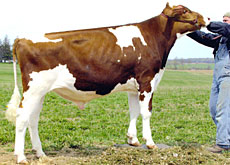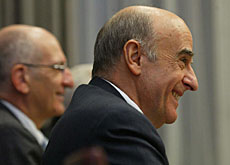“It’s difficult to prevent scientific fraud”

The South Korean cloning scandal and fraud charges against a Norwegian cancer expert are the tip of the iceberg, a Swiss scientific researcher tells swissinfo.
Dieter Imboden says little can be done to prevent such incidents and he does not rule out the possibility that similar scams could occur in Switzerland.
Last week it emerged that an Oslo-based scientist had invented patients’ histories for a study about oral cancer published in the respected medical journal The Lancet.
Revelations that the research conducted by Jon Sudbo had been fabricated came less than a week after the United States journal Science retracted two discredited papers by disgraced South Korean scientist Hwang Woo-suk.
Hwang’s claim that he had successfully cloned human embryos to provide stem cells turned out to be an elaborate hoax.
Imboden, the president of the Swiss National Science Foundation’s Research Council, said he hoped the scandals would not undermine the “basic trust” which exists between the scientific world and the wider public.
swissinfo: Can anything be done to prevent scientific fraud?
Dieter Imboden: It’s difficult to prevent all cases of fraud, but sooner or later the people involved will be found out. Bear in mind that every experiment will be repeated at some stage and it is one of the important principles of science that only things which can be verified independently by different groups are considered to be safe scientific facts.
swissinfo: Are the recent cases just the tip of the iceberg?
D.I.: Unfortunately they probably are only the tip of the iceberg, but that’s something we’ve known for a long time. In any line of work – whether it’s sport, politics or whatever – there will always be a certain percentage of people who abuse the system. And this is certainly also the case in science.
These days research takes place in the public eye and there are tremendous opportunities to become famous if you are the first and if you can come up with something new. So there can be a temptation to join the select club of scientists who are internationally known as great heroes.
swissinfo: Switzerland is a major centre for scientific research. Could this kind of fraud happen here?
D.I.: We have had cases of fraud in the past and nobody can say that such things will never happen in a particular place – even in Switzerland. There is an inherent risk when you have a system which is based on trust. And that trust can be misused.
In a way it’s not so much the place where you work that is relevant but the particular area of research you are involved in. In certain research areas which are known to the public, the temptation is bigger. So the desire to commit fraud is more related to disciplines than places or scientific institutions.
swissinfo: But surely high-profile places like the Swiss Federal Institute of Technology worry about the consequences of being associated with any kind of fraud?
D.I.: They certainly do worry. The Federal Institute of Technology, for example, has published a white paper which addresses the problem of scientific misconduct and distinguishes between different kinds of fraud. The institute has the proper mechanisms in place and is well prepared for an event of this kind. Scientists could, for example, be thrown out of the institute.
What makes a good university is not so much whether it can completely avoid events of this kind, but how it would act if it is confronted with scientific misconduct. Does it try to hide it? Or does it bring it out in the open? And does it have the proper procedures for dealing with what has happened and with the people involved?
swissinfo: So the trick is to know how to deal with cases of fraud when they arise, rather than try to stop them before they happen?
D.I.: In theory you could say that nothing will be published until somebody has checked all the details, in the same way that you would check somebody’s bank account and look through every single transaction.
But I think that would be the wrong answer, because it would tremendously inhibit science and innovation. Things would become incredibly bureaucratic.
I prefer a system where decisive action is taken when fraud is discovered. But we should not change the basic trust we have in what our colleagues are doing. If this becomes mistrust, if the first thing you do when you get a paper from a colleague is check whether he has made up all the data, you would be fundamentally changing the way that knowledge is exchanged and the atmosphere in which research is conducted. And that would definitely not be the right way to go.
swissinfo-interview: Ramsey Zarifeh
South Korea’s Hwang Woo-suk claimed in 2004 to have successfully cloned a human embryo and produced stem cells from it.
But last year it was discovered he had fabricated evidence for his scientific papers published in Science.
Last October another science journal, the Lancet, published case studies by Norwegian cancer expert Jon Sudbo, which their author later admitted had been invented.

In compliance with the JTI standards
More: SWI swissinfo.ch certified by the Journalism Trust Initiative










You can find an overview of ongoing debates with our journalists here . Please join us!
If you want to start a conversation about a topic raised in this article or want to report factual errors, email us at english@swissinfo.ch.